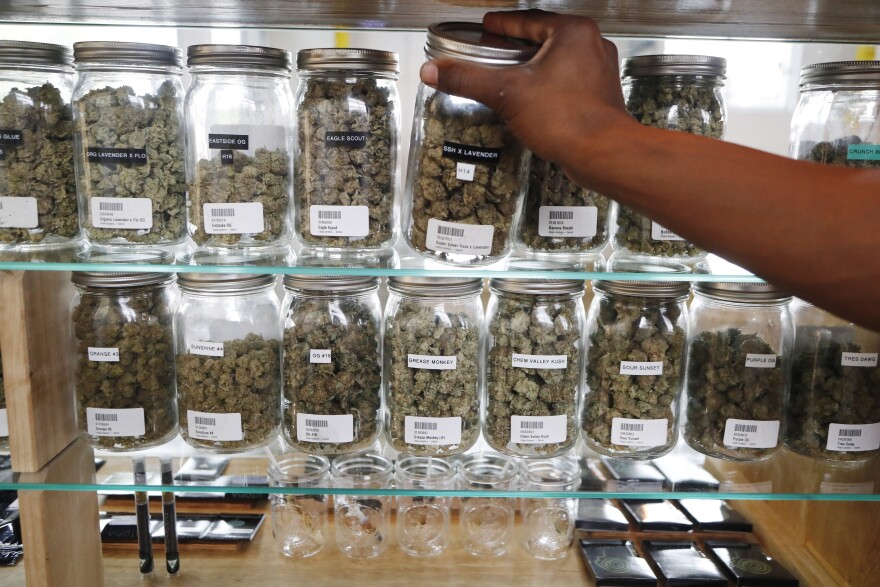In a rare display of bipartisanship in Washington, more than three-quarters of the members of the U.S. House of Representatives voted last week to give marijuana-related businesses access to the federal banking system.
The proposal could be dead in the water, though, with Senate leaders seen as less friendly to the idea of expanding pot laws.
The SAFE, or Secure And Fair Enforcement, Banking Act seeks to open a long-shut door for marijuana businesses by prohibiting banking regulators from penalizing banks for providing services that are legal under local law.
That’d be a boon for Ohio’s growing medial pot business, which has been slowly coming online since September 2016. Ohio is among 33 states nationwide where medical pot is legal, but dispensaries, cultivators and others have largely relied on cash to avoid bank limitations on loans, lines of credit, and even checking accounts.
Federal banks are handcuffed by the Controlled Substances Act of 1970, which lists marijuana as a Schedule 1 drug, putting it alongside narcotics such as heroin and cocaine.
But in recent years, there’s been a flood of cities and states reducing penalties for marijuana offenses.
“There’s an inherent conflict between federal law and state law, and so bank regulators have applied strict federal law and effectively de-banked not just the medical marijuana-related businesses, but even employees who get their payroll there, employees who want to count that income for mortgages, or businesses who have supplier relationships with businesses in that state,” says Rep. Warren Davidson, a western Ohio Republican who was among the SAFE Act’s 206 House sponsors.
Asked why the federal government lags so far behind states on this issue, Davidson said "it’s a tough political dynamic” for candidates to support marijuana.
Davidson joined seven other members of Ohio’s congressional delegation in sponsoring the SAFE Banking Act. They include Republicans Troy Balderson, Bob Gibbs, Anthony Gonzalez, David Joyce and Steve Stivers, and Democrats Marcia Fudge and Tim Ryan.
Speaking to WOSU on Monday, Ryan said he’s “not optimistic” that the Senate will even take up the measure.
“I think it’s probably going to have to wait until we potentially get a chance in the makeup of the United States Senate controlled by Democrats,” Ryan said.
Senate Majority Leader Mitch McConnell has long expressed skepticism at expanding marijuana laws. He’s supported loosening hemp laws, but last year McConnell told reporters, “It is a different plant. It has an illicit cousin which I choose not to embrace.”
Three other members of Ohio's Congressional delegation—Democrats Joyce Beatty and Marcy Kaptur, and Republican Bill Johnson—are not sponsors but voted for the measure.
Republican Reps. Steve Chabot, Jim Jordan, Bob Latta and Brad Wenstrup voted against the act. None responded to requests for comment.





